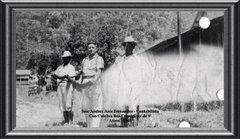What’s So Good About Suffering?
William Doverspike, Ph.D.drwilliamdoverspike.com
Written almost as early as the Book of Genesis, the Book of Job is considered one of the great classics of all literature. Job lived almost 3,000 years ago and was described as a model human being, one who was "perfect and upright, and one that feared God and eschewed evil" (Job 1:1). As the story goes, God allowed Satan to test Job’s integrity of faith, stripping him of his family, his wealth, and finally his health. Throughout the story, Job’s suffering was compounded by the ineffectual advice of his wife and friends. Yet throughout his trials and suffering, Job’s faith never weakened.
Job eventually pleads his case before God, asking God to explain the reason for his suffering, asking God to answer the question why. Near the end of long narrative, God finally speaks. Interestingly, it is the longest speech that God makes in the entire Bible. Yet God doesn’t give a single answer to any of Job’s questions! As an ancient story of the timeless problem of innocent suffering, the story of Job provides a model for the modern survivor of suffering: Job’s suffering came to an end when he stopped asking the question why. From a psychological perspective, Job’s recovery began not because he learned the reason for his suffering, but because he stopped asking the question why.
Overcoming suffering is not about why something happened in life; it is about how we respond to life. Inspired by the illness and death of his son, Rabbi Harold Kushner (1981) wrote a book titled When Bad Things Happen to Good People. Described as one of the ten most influential books ever written, it is interesting to note that the title is often misquoted as "Why Bad Things Happen to Good People." In his analysis of the question of innocent suffering, Rabbi Kushner emphasizes that we need to get over the why questions that focus on the past and the pain: "Why did this happen to me?" Instead, we need to ask the question which opens doors to the future: "Now that this has happened, what shall I do about it" (p. 137). Kusher makes the following observation: In the final analysis, the question of why bad things happen to good people translates itself into some very different questions, no longer asking why something happened, but asking how we will respond, what we intend to do now that it has happened. (p. 147)
The English novelist Aldous Huxley (1894-1963) once said, "Experience is not what happens to us, it is what we do with what happens to us." What we do with our suffering is more important than what has caused our suffering. Huxley had originally planned to become a scientist, but poor eyesight forced him to turn to writing. Despite his poor eyesight, Huxley developed a futuristic vision which was the basis of his utopian novel Brave New World.
Holocaust survivor and psychiatrist Victor Frankl also turned to writing in the dark corners of a death camp in Bavaria. In Man’s Search for Meaning, expanded from its original title, From Death-Camp To Existentialism, Frankl wrote, "For what matters above all is the attitude we take toward suffering, the attitude in which we take our suffering upon ourselves" (1969, p. 178). Frankl’s understanding of suffering was forged out of his survival of three years in four different Nazi concentration camps. Upon liberation from the death camps, he discovered that he had not yet experienced the limits of his suffering. When he returned to his native home of Vienna, he learned that his wife, his brother, and both of his parents had been killed in the camps.
In living to reconstruct his lifetime achievement, which once had been a crumpled manuscript destroyed on a floor in Auschwitz, Frankl completed a book that eventually sold more than 9 million copies in 23 different languages. In an interview shortly before his death at the age of 92, Frankl noted that he was still receiving an average of 23 letters each day, mostly from those thanking him for writing a book that changed their lives ("Frankl dies", 1997). Frankl’s lifetime achievement was not only his monumental book, but also the fact that his suffering was forged into an instrument of redemption that changed the lives of millions. His life is a story of redemption, the process of transforming suffering into a meaningful purpose in life. His story illustrates that how we take on our suffering is more important than why we suffer. As Frankl concluded, "Suffering ceases to be suffering in some way in the moment that it finds a meaning" (1969, p. 179).
The Russian novelist Fedor Dostoevski (1821-1881) once said, "There is only one thing that I dread: not to be worthy of my sufferings." Our sufferings can be either obstacles or opportunities. The only difference is how we view them. Our experiences can be either stumbling blocks or stepping-stones on the path of life. The difference is how we use them. It is not our circumstances but how we react to them that matters. It is not what happens to us, but what we do with what happens that matters the most in life. Reprinted from Doverspike, W. F. (2001). What's So Good About Suffering? Georgia Psychologist, 55(3), 23.
Georgia Psychological Association 2200 Century Parkway, Suite 660 Atlanta, Georgia 30345Phone: 404-634-6272 Fax: 404-634-8230
Subscribe to:
Post Comments (Atom)





No comments:
Post a Comment